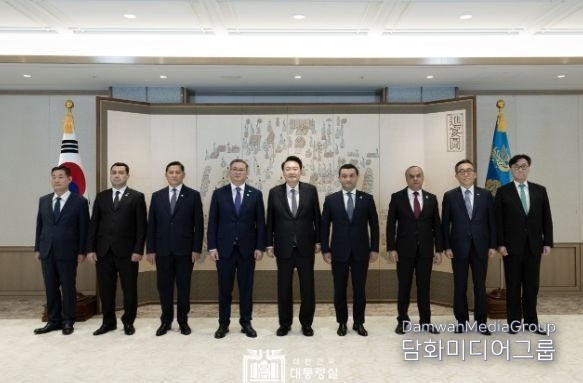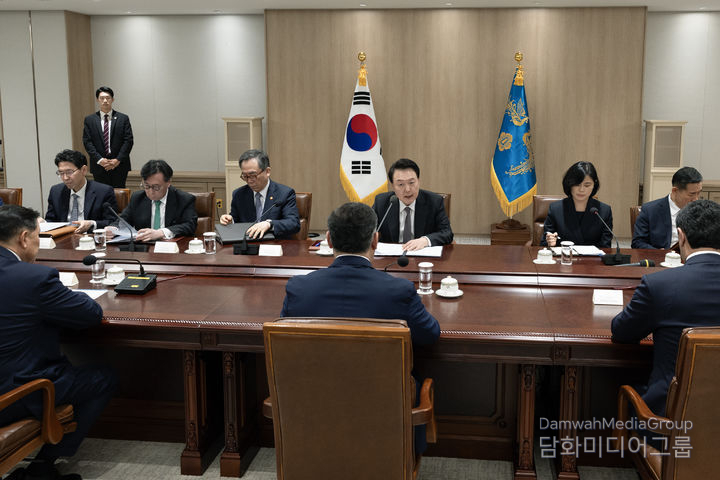By Diplomacy Journal Lee Jon-young
President Yoon Suk-yeol received the heads of delegations of five Central Asian countries visiting Korea for the 17th Korea-Central Asia Cooperation Forum on Nov. 4, and exchanged views on how to develop Korea-Central Asia relations and major international issues, including North Korea's deployment of its soldiers to Russia.

The heads of delegations of five Central Asian countries at the 17th Forum on Korea-Central Asia Cooperation are:
- (Kazakhstan) Murat Nurtleu, Deputy Prime Minister and Minister of Foreign Affairs
- (Uzbekistan) Bakhtiyor Saidov, Minister of Foreign Affairs
- (Kyrgyzstan) Asein Isaev, First Deputy Foreign Minister
- (Tajikistan) Deputy Foreign Minister Sodiq Imomi
- (Turkmenistan) Ambassador Begench Durdyyev to Korea
The President said that Central Asia is an economically and diplomatically important region for us, and a special place that Koreans feel close to because of its cultural similarities to our own, and that the interest of our people and businesses in the region, with its rich mineral resources and talented labor force, continues to grow.
The President went on to explain that the 320,000 Korean compatriots living in the Central Asian region have long served as a bridge between Korea and Central Asia's close ties, and that his government, recognizing the strategic importance of Central Asia, announced the “Korea-Central Asia K-Silk Road Cooperation Initiative,” the country's first Central Asia-specific diplomatic strategy, along with a trip to Central Asia (Turkmenistan, Kazakhstan, and Uzbekistan) in June to promote a significant and systematic development of Korea-Central Asia relations.
Based on this initiative, the President said that the Korean government will host the 'Korea-Central Asia Summit' for the first time in Korea next year, and expects the active interest and cooperation of Central Asian countries to make the summit an opportunity to take Korea-Central Asia relations to the next level.

In response, the Heads of State and Government of the five Central Asian countries said that the Korea-Central Asia Cooperation Forum was an important opportunity to expand mutually beneficial cooperation between the two regions in comprehensive areas such as supply chain, environment and climate change, digital, and tourism, and that they will continue to actively support the future-oriented partnership between Korea and Central Asia based on the Korea-Central Asia K-Silk Road Cooperation Initiative.
They also expressed their countries' high interest in and expectations for next year's Korea-Central Asia Summit, saying that their countries will spare no effort to make it a success.
Meanwhile, the President emphasized that the DPRK is engaged in illegal military cooperation with Russia in direct violation of international law and UN Security Council resolutions, going beyond the transfer of military equipment to the dangerous and unprecedented deployment of special forces, and that the international community must stand together to respond to the DPRK's challenges that threaten peace and security around the world.
In this regard, the President called on the Central Asian countries, which have long maintained communication channels with Russia and North Korea, to make diplomatic efforts to prevent military cooperation between Russia and North Korea.
The representatives of the five Central Asian countries stressed the need for dialogue and cooperation among all partners to ensure that international law and the UN Charter are observed and that the independence and territorial sovereignty of all states are respected.







